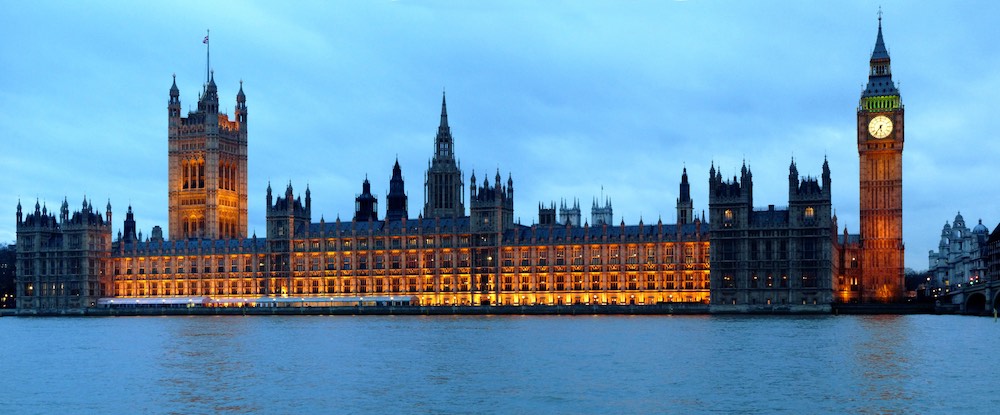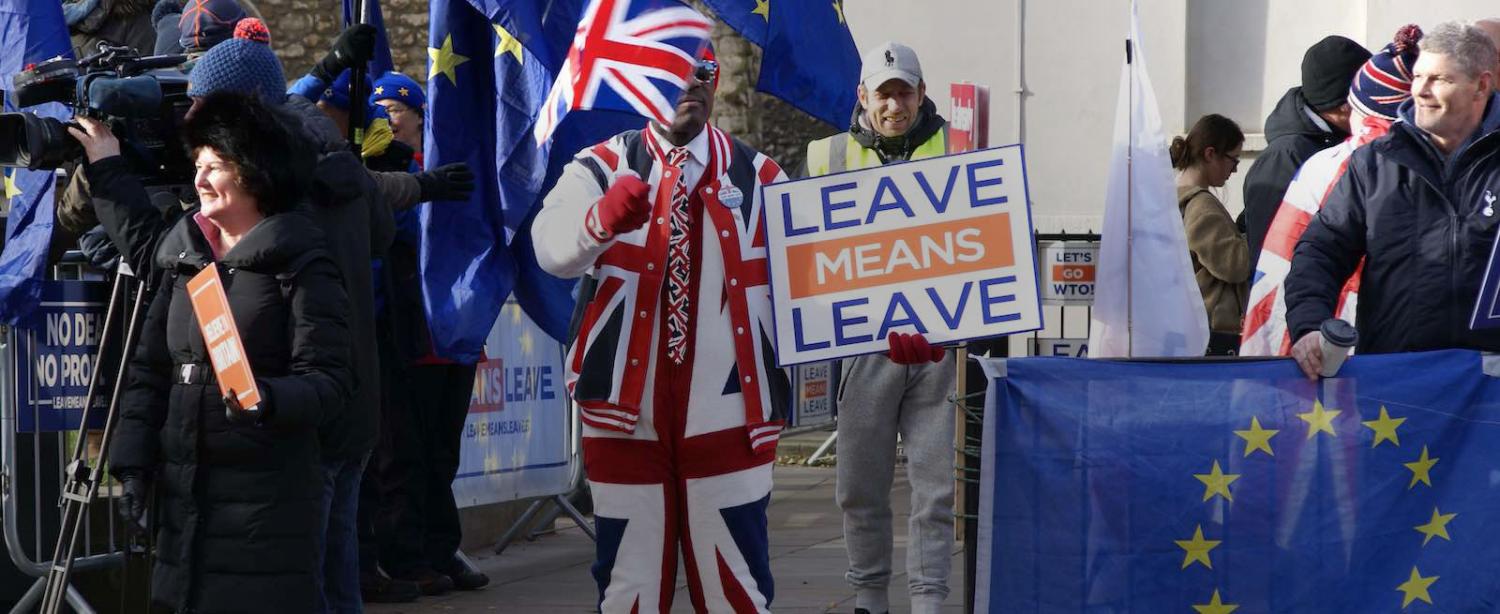In March 2017 the British government invoked Article 50 of the Lisbon Treaty and gave itself two years to organise an orderly withdrawal from the European Union. Now, with the time almost up, it is still unclear whether the withdrawal will be orderly, disorderly, postponed or abandoned.
The arguments that surrounded the campaign leading up to the June 2016 referendum have yet to subside and there is no reason to suppose that they will soon.
A withdrawal agreement was negotiated with the EU late in 2018, but when it was put to a vote in January it was comprehensively defeated. Those who wish to remain in the EU, or at least have a close relationship in the future, felt it went too far. Those who wish for the sharpest break possible felt it did not go far enough.
In particular the more extreme Leavers have fixated on the so-called “Irish backstop” (essentially a commitment to keep the border between Ireland and Northern Ireland open in the absence of adequate technical arrangements by staying in the customs union). Meanwhile the many other issues raised by withdrawal from the EU are left unexamined. The arguments that surrounded the campaign leading up to the June 2016 referendum have yet to subside and there is no reason to suppose that they will soon. If there is an orderly withdrawal the discussion will move straight away, again with the clock ticking, onto the big issues to do with Britain’s future relationship with the EU. The backstop is an issue largely because it appears to pre-judge an issue that was meant for the transition.
How did the United Kingdom get itself into such a political mess?
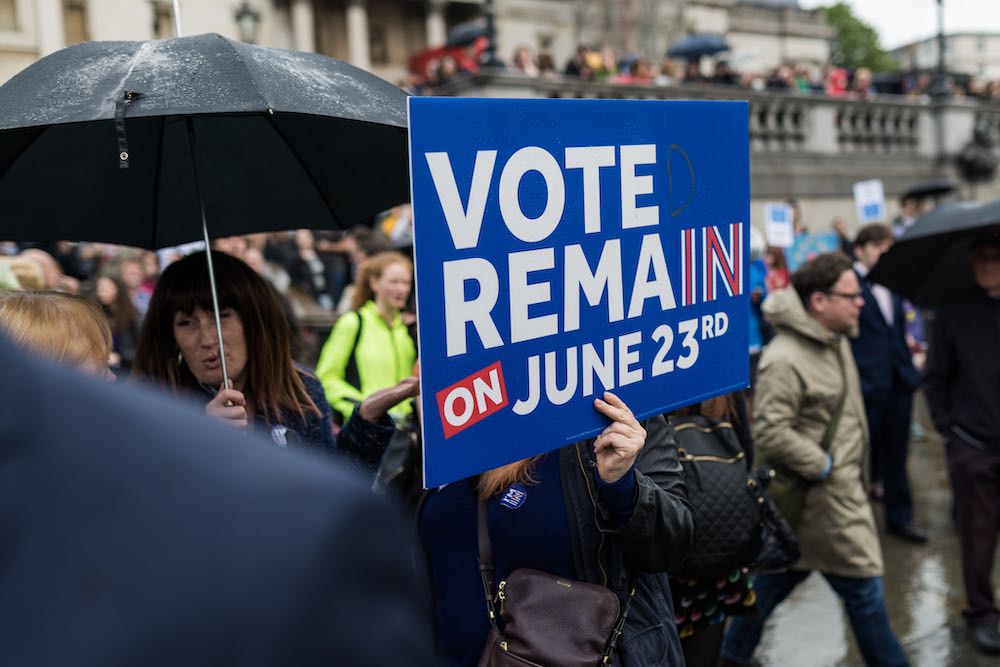
The tensions within the Conservative Party, aggravated by the rise of the nationalist UK Independent Party (UKIP), led David Cameron as prime minister to promise a referendum. Instead of providing a means of unifying the party it has divided it further. Cameron departed immediately after the decision to leave was announced. His successor Theresa May moved quickly to affirm that the country would leave. Then May’s focus on internal party management meant that she failed to work out how to achieve this with the minimum of disruption.
Once Article 50 was invoked the UK lost negotiating leverage. This mistake was then compounded by May’s decision to hold a general election in June 2017, where she managed to squander a 20% lead in the opinion polls and ended up severely weakened, staying in government only with the help of Northern Ireland’s Democratic Unionist Party.
Thereafter her party pulled both ways on how Brexit should be handled. The somewhat misnamed European Research Group (ERG) of hard-line Leavers pushed for the sharpest possible break with the EU, however chaotic and damaging. A smaller group of unrepentant Remainers agitated either for a much softer Brexit or a second referendum to see whether the public still thinks leaving the EU is such a good idea.
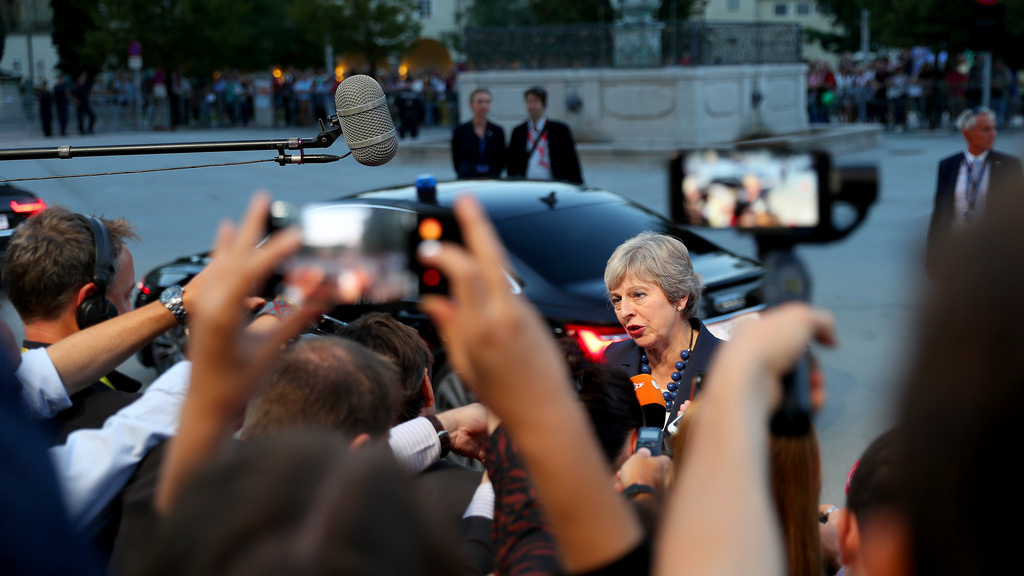
May has responded to all of this with stubbornness and a degree of resilience in order to push through her unloved withdrawal agreement. She has seen off votes of no confidence in her party and her leadership so she can stay in office even as she struggles to assert her authority. Her strategy is essentially one of running down the clock and daring MPs to vote for the agreement lest they end up without any deal at all, or alternatively without Brexit. She claims to be seeking further concessions from EU to make the deal more attractive but so far has had no joy. As long as the ERG think there might be a “no deal” Brexit they will oppose her. It is now the case that any alternative to crashing out will require extending Article 50. This will require the unanimous agreement of the EU, which will probably be granted because of anxieties about the UK crashing out.
Faced with a government that has shown itself to be divided and inept, a well-organised opposition should have been able to pull it down. The opposition Labour Party, however, has turned out to be even more divided and inept.
The reason for this is that since the far-left MP Jeremy Corbyn won the Labour leadership in 2015 he has been at odds with the more moderate majority of his parliamentary party. Corbyn’s enthusiastic support among the membership means that his position – like May’s – is unassailable. He has refused to shift his ground sufficiently to satisfy the moderates, and could not do so without renouncing his past.
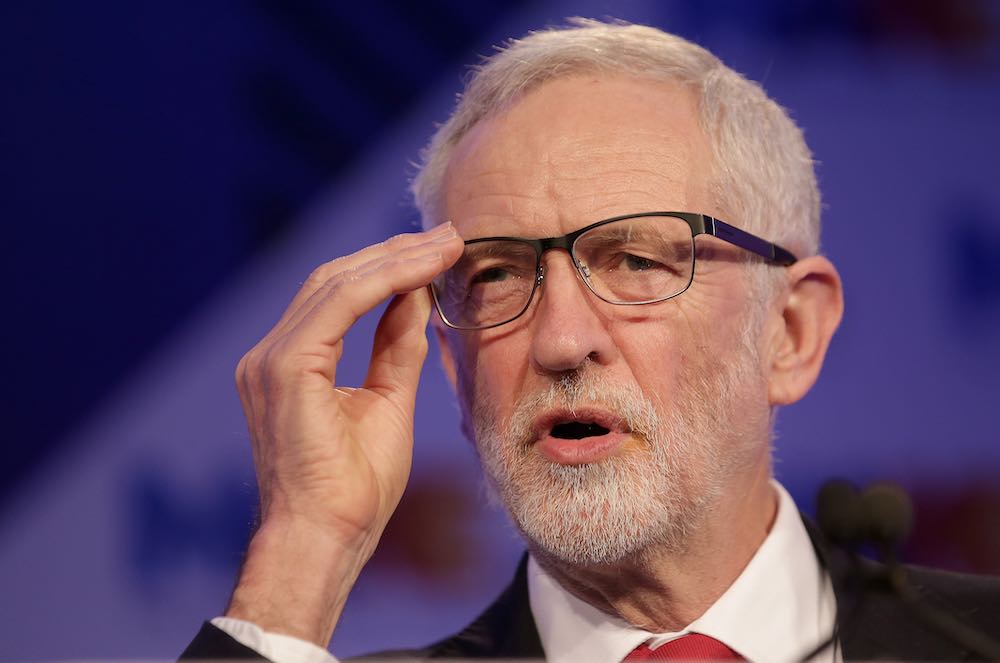
Corbyn has long been an opponent of Britain’s membership of the EU, and of NATO, and has associated with countries and groups opposed to the US and its allies. His reluctance to blame Russia for the use of chemical weapons in Salisbury in March 2018 and more recently his past role as a cheerleader for Hugo Chavez and then Nicolas Maduro in Venezuela have undermined confidence in his judgement.
Many of those who voted for Corbyn in 2017 convinced that he would oppose the government’s Brexit policy have been disappointed. Although the Labour party conference was in favour of pushing for a second referendum, he has been reluctant to do so. Apart from his own preference for leaving the EU, the party’s traditional base contains many Leave constituencies and for some reason the idea of another referendum has been denounced as profoundly undemocratic by those most enthusiastic about the result of the first referendum. Although the country has probably had enough of Brexit debates, and choosing the question to be put would not be straightforward, it may still be that another referendum is the only way of resolving the matter if parliament stays deadlocked. So far Corbyn has been clear that he wants to avoid “no deal” but other than that he has been equivocal.
This has not been the most toxic issue in the Labour Party. Corbyn’s history of intense anti-Zionism, which goes well beyond distaste for Benjamin Netanyahu’s government in Israel, has led him sit on platforms with anti-Semites who are into Holocaust denial and claims about the controlling influence of Jewish money. These themes now appear in the abuse heaped on Jewish members of the party whose position has become increasingly intolerable. They face absurd accusations of being paid agents of Israel every time they criticise Corbyn.
It was the complete failure to address this issue, more than anything else, that led to the defection this week of eight MPs from the Labour Party to form The Independent Group (TIG). By contrast the three Conservative MPs who have resigned to join this group did so much more because of Brexit.
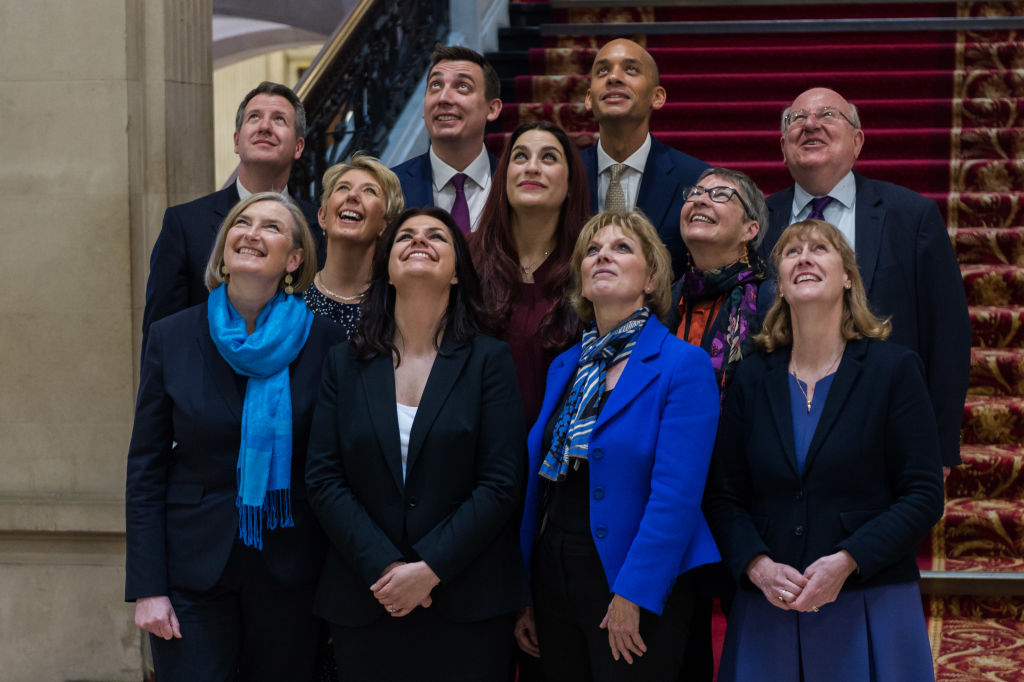
This group is very much work in progress. It lacks leadership and policies. It has to work out a relationship with the Liberal Democrats, whose brand is still tainted because of the 2010–2015 coalition but have a decent national infrastructure and many local councillors. History and the “First Past The Post” electoral system do not favour insurgent parties but early polls suggest that it could garner significant popular support, largely at the expense of Labour. TIG may best be seen as a vanguard, putting the main parties on notice that there could be more defections if they do not reform. The risk to the Labour Party is aggravated by the desire of many close to the leadership to rid the party of those insufficiently committed to their brand of socialism and anti-imperialism.
Even if the main parties hold together, discipline within them is now lax, especially on Brexit. The ERG has been acting as a party within a party throughout the Brexit saga. A cross-party group of MPs is pushing a vote next week to prevent a “no deal” outcome. It is this fluidity that makes predictions so hard on Brexit or the future of the party system.
We could be weeks away from an outbreak of national hysteria as supermarkets are emptied in panic buying, riots on the streets as a result of anger that Brexit is being lost, and a long-term transformation of political alignments. But it has to be said at the moment, and despite the genuine reasons for worry about the impact of Brexit, the country is actually quite calm.
The focus is on Parliament, which is where it should be. This is one of those rare moments when politicians cannot duck their responsibilities and must make some hard choices. The current spectacle may be unedifying at times and the consequences of failure terrifying but at least it shows that parliamentary democracy is alive and kicking.
